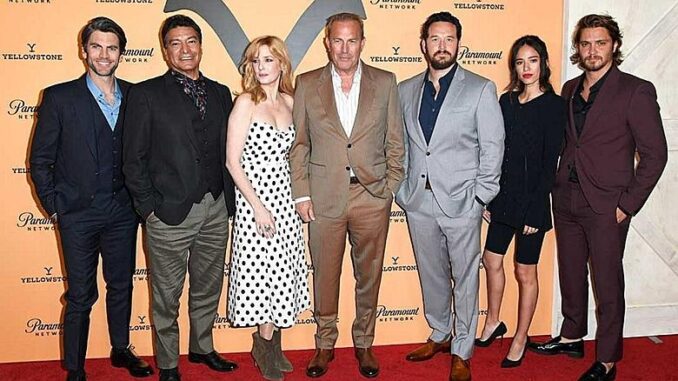
The Cracks in the Foundation: What Kevin Costner's Exit Means for the Soul of Yellowstone
Yellowstone is more than just a television show; it's a modern American epic, a sprawling saga of land, legacy, and the relentless fight to preserve a vanishing way of life. At its weathered, stoic heart has always been John Dutton, portrayed with an unparalleled gravitas by Kevin Costner. He is the sun around which the Dutton family universe orbits, the immovable object against every irresistible force. Thus, the news of Costner’s definitive departure from the series is not merely a casting change; it is a seismic event, a crack in the very foundation of the Yellowstone ranch, forcing the show to confront a radical transformation, or perhaps, its inevitable, bittersweet conclusion.
To understand what Costner’s exit means, one must first grasp what John Dutton represents. He is the show's moral compass, however flawed, its unwavering protector, and the physical embodiment of the land he fights to defend. Costner’s portrayal imbues Dutton with a rugged authenticity, a deep-seated melancholy, and a simmering, dangerous resolve that anchors every narrative thread. He is the patriarch, the ultimate decision-maker, and the primary target of every foe. Without him, the very central conflict of Yellowstone—the preservation of the ranch—loses its most potent and personalized avatar. His absence creates a narrative void, a gaping hole in the show's gravitational pull that will be immensely difficult, if not impossible, to fill.
The immediate and most pressing challenge is the narrative resolution. How does Yellowstone write off its central figure? A simple disappearance feels incongruous with Dutton’s character; he is not one to walk away. A heroic, sacrificial death, while dramatic, would signify the absolute end of an era, potentially leaving the remaining characters adrift without their North Star. Such a pivotal event would inevitably redefine every character’s arc: Beth, whose fierce loyalty is rooted in her father; Kayce, eternally torn between his family and his own path; Rip, whose entire existence is devoted to serving John. Their identities are inextricably linked to Dutton, and without him, they must either forge new ones or simply cease to be the characters we know. The show’s very reason for being – the multi-generational fight for John Dutton’s legacy – becomes complicated if John Dutton himself is no longer there to lead it.
Beyond the internal narrative, Costner's star power brought an undeniable weight and prestige to Yellowstone. He was the marquee name that drew in initial viewers, lending an air of cinematic grandeur to a television series. His presence elevated the show from a popular cable drama to a cultural phenomenon. While Yellowstone has since cultivated a loyal fanbase and developed a strong ensemble, the loss of its iconic lead will undoubtedly test its continued drawing power. It signals to many that the definitive chapter of the Dutton saga, as originally conceived, is drawing to a close, potentially leading to a decline in viewership or, at the very least, a shift in audience perception.
However, amidst the challenges, Costner's departure also presents a crucible for the show's future. It forces Yellowstone to evolve, to find new narrative engines and to push its secondary characters into the spotlight they might not have otherwise fully occupied. Will Beth and Rip step up as the undisputed leaders, inheriting the mantle of ruthless protection? Will Kayce finally embrace a role that transcends his perpetual internal conflict? This forced evolution could lead to compelling, character-driven arcs that might have otherwise been overshadowed by John Dutton’s overwhelming presence. The show could shift its focus more towards the complexities of the ranch as an institution, rather than solely as John’s personal battleground, perhaps exploring themes of succession, the next generation's vision, or even the eventual, inevitable sale of the land.
Ultimately, Kevin Costner’s exit from Yellowstone marks the end of an era, signaling that the show as we know it—the relentless, often brutal, fight led by its patriarch—is nearing its conclusion. It forces the series to shed its skin, to either die, or to transform into something fundamentally different. While it may pave the way for a more ensemble-driven future or a definitive closing chapter, it irrevocably alters the show's soul. The Yellowstone ranch may still stand, but the quiet, powerful force that held its foundation together will be gone, leaving behind a legacy that is both profoundly impactful and deeply, undeniably changed. The cracks are showing, and what emerges from the fissure will define Yellowstone's place in television history.
